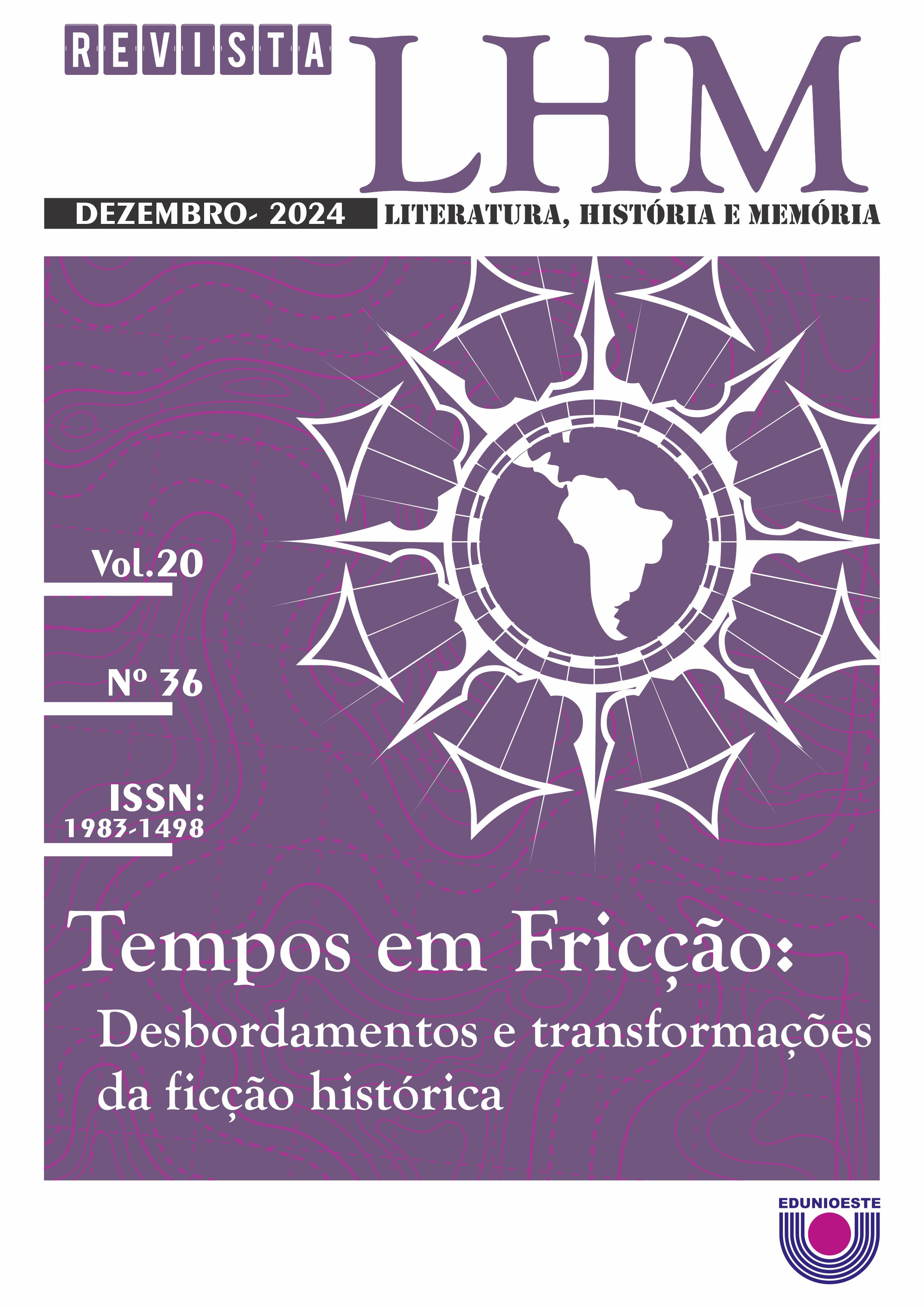A narrativa como forma de arquivamento e testemunho
do sofrimento real ao receptáculo ficcional
DOI:
https://doi.org/10.48075/rlhm.v20i36.33851Resumo
K.: relato de uma busca, o livro; Bernardo Kucinski, o autor; Skoob, a rede social onde se manifestaram alguns leitores. Estes são os integrantes dos corpora de nossos estudos e subsidiam nosso objetivo de investigar sobre a recepção de um livro que aborda a ditadura militar. Para tanto, ancoramos nossos estudos nas teorias da recepção de Jauss (1994), e da hermenêutica literária, aludidos por Zilberman (1989), e sobre o efeito estético, de Iser (1996a, 1996b, 1999a, 1999b). Também visitamos conceitos relacionados à teoria das mediações, principalmente de Martín-Barbero (1997), já que este aborda conceitos que julgamos fundamentais à nossa pesquisa e são, de certa forma, relacionados à estética da recepção. Também escalamos Figueiredo (2017) e Ricoeur (2007) para nos auxiliarem na compreensão de palavras voltadas à história, já que não é escopo da estética da recepção abordá-los. Por tratar-se de um livro com cunho relacionado à ditadura militar, período histórico, estes estudiosos nos ajudam na compreensão inclusive de alguns termos empregados pelos internautas da Skoob, receptores do livro K.: relato de uma busca. Conceitos, palavras e afirmações como esquecimento, memória, lembranças, ausência, trauma, e tantos outros termos que ajudam na retratação e rememoração de acontecimentos relacionados ao sofrimento de vítimas de um período como a ditadura militar auxiliam os leitores a expressarem suas leituras e compreensões realizadas a respeito de um livro como K.: relato de uma busca.
Downloads
Publicado
Como Citar
Edição
Seção
Licença

Este trabalho está licenciado sob uma licença Creative Commons Attribution-NonCommercial-ShareAlike 4.0 International License.
Aviso de Direito Autoral Creative Commons
Política para Periódicos de Acesso Livre
Autores que publicam nesta revista concordam com os seguintes termos:
1. Autores mantém os direitos autorais e concedem à revista o direito de primeira publicação, com o trabalho simultaneamente licenciado sob a Licença Creative Commons Attribution que permite o compartilhamento do trabalho com reconhecimento da autoria e publicação inicial nesta revista.2. Autores têm autorização para assumir contratos adicionais separadamente, para distribuição não-exclusiva da versão do trabalho publicada nesta revista (ex.: publicar em repositório institucional ou como capítulo de livro), com reconhecimento de autoria e publicação inicial nesta revista.
3. Autores têm permissão e são estimulados a publicar e distribuir seu trabalho online (ex.: em repositórios institucionais ou na sua página pessoal) a qualquer ponto antes ou durante o processo editorial, já que isso pode gerar alterações produtivas, bem como aumentar o impacto e a citação do trabalho publicado (Veja O Efeito do Acesso Livre).
Licença Creative Commons
Esta obra está licenciada com uma Licença Creative Commons Atribuição-NãoComercial-CompartilhaIgual 4.0 Internacional, o que permite compartilhar, copiar, distribuir, exibir, reproduzir, a totalidade ou partes desde que não tenha objetivo comercial e sejam citados os autores e a fonte.


